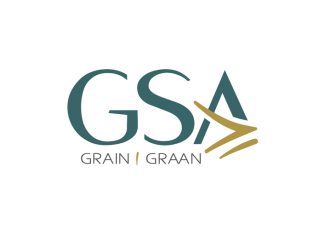
CEO, Grain SA pieter@grainsa.co.za
An announcement on a flight I was on recently just reminded me of our economic state of affairs. The captain explained that they had tried different heights, that the specific one was the best and that we should rather keep our seatbelts on.
We should probably have accepted it by now. Nevertheless, we keep on hoping for a better outcome during crisis times – albeit in vain. This is exactly what has happened to the exchange rate since the weakening that took place during Covid. Just a reminder that the downside of a weakened exchange rate is much greater than the upside of the temporary relief in local commodity prices. Straight up the end result is that basic consumers – those living on and below the breadline – just get deeper and deeper into trouble.
Strategically Grain SA is extremely well-focused and positioned. However, our number of interventions as well as their urgency are placing tremendous pressure on us to organise differently in order to keep delivering constant results. The foundation is the starting point. We will have to improve our regional structures for mutual communication. At the recent regional meetings, we have once again seen that cooperation with existing farmers’ unions and/or study group meetings works best in order to obtain meaningful numbers.
Be assured that you as grain producer continue to be the most important and that your sustainability and profitability remain our highest priority and the focus of all our resources. However, in recent years the balance has started to become suboptimal. We will have to turn a greater percentage of the team’s time into impact time. This can easily be done if our regional structures are optimally organised for effective communication. To help with this on an operational level, we are constantly innovating internal systems and using technology to our advantage. We must ensure that the feedback we work with and which determines our focus, is representative of all members. Once again technology can be used here effectively.
I have spoken to many members and non-members over the past 19 months as part of our strategy to move closer to our members, especially with the focus on the younger generation. In short, my summary is that the times are forcing us to focus on business. More informal, social interaction has always been part of the agriculture sector – it was and is necessary, but times are changing.
Security on farms, larger business units and especially more commodities that are being produced, are limiting the opportunities for such interaction. In no way am I saying that we won’t do it anymore, but in reality, that luxury is disappearing. The fact remains: Producers want to have their voice heard fairly, connect and rub shoulders with others and for the rest just focus on their family and business. I just think we still spend unnecessary resources to internally convince and motivate what the organisation is doing – and that at the expense of impact time.
Interference by governments
Affordability of basic food will remain Africa’s greatest challenge, especially with the high levels of unemployment. Food schemes and basic income grants lead to spending – and yes, agriculture receives its fair share of this. However, their financing is not sustainable, specifically taking into account the number of taxpayers. No-one wants to pay taxes anymore with our level of service delivery and corruption. The red flag being raised here is interference.
During the recent Easter weekend, we received urgent calls from Zambia for the export of 5 000 tons of maize meal to them – a country with a much higher crop production potential than South Africa. This is what African governments have achieved over years of gambling with staple food. No commercial producer is interested in actually producing it on a continuous scale because of the ill-considered interference in the market.
On the positive side I think we can be particularly pleased with our own performance over the last few seasons and what the industry was able to achieve with maize and soybean exports under extremely difficult infrastructure conditions.
I cannot imagine the enormous crisis we would have had if we could not get the surpluses out. Just look at what happened more recently when we were temporarily unable to export. Then I also shudder to think of the food inflation we would have had if we hadn’t been blessed with good yields since Covid and if we had to import, given all the challenges.
Although the grain industry is still standing its ground, we should just know that harder times are definitely on the way, especially with weather patterns that look to be systematically moving into another cycle. As has often been said, change is the only constant. Don’t skip that critical planning and analysis. Make sure you stay fully informed, plan for the tougher times and challenges to come. Please also help to think how we can keep Grain SA as effective as possible to deliver results for you.
We badly need everyone’s input, wisdom and, above all, cooperation. Enjoy farming!












